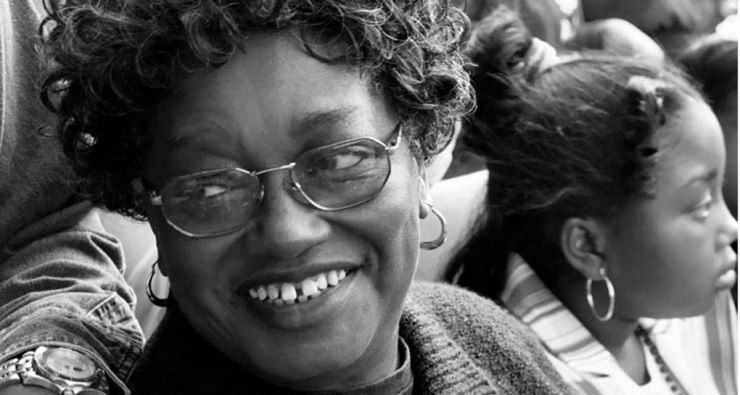1199’s Rosa Parks
March 2, 2018

The courage and leadership of Florida’s Majory Stoneman Douglas High School students in the aftermath of brutal mass killings, have inspired activists for social change and sparked renewed calls for gun control. The students call to mind historic youth protests such as the 1963 Children’s Crusade to desegregate Birmingham, Alabama.
Eight years earlier in 1955 Birmingham made national news in another desegregation battle when Rosa Parks refused to give up her bus seat. But the action of a youth earlier in the year brought the issue to the fore. On March 2, 1955, 15-year-old high school student Claudette Colvin was arrested, jailed, and convicted for refusing to give up her bus seat to a white passenger.
But while Rosa Parks and Dr. Martin Luther King, Jr., who led the bus boycott campaign, were rightly honored and celebrated, Claudette Colvin was mainly forgotten. That was until 2009, when Phillip Hoose’s novel, “Claudette Colvin: Twice Toward Jusice,” won the 2009 National Book Award in the Young People’s Literature category.
The title “Twice Toward Justice” refers to Colvin’s refusal to give up her seat and the equally courageous decision to lend her name to and to testify in Browder v Gayle, the subsequent landmark suit that ruled segregated seating violated due process and equal protection of the law.
It was after the publication of Hoose’s novel that leaders of 1199 learned that Colvin, who moved to New York as a young woman with her two sons, had worked for 36 years as a nurses’ aide and was a loyal 1199 member at Mary Manning Walsh nursing home in Manhattan. She retired from the home in 2004.
“For 36 years we had a true American hero and pioneer in our 1199SEIU family, and we didn’t even know it,” said George Gresham as he introduced Colvin during the Union’s 50th anniversary celebration of its first hospital victories.
During an interview with 1199 Magazine on the 60th anniversary of her arrest, Colvin stated, “When I was ordered to get up, I felt as if Sojourner Truth’s hand was pushing down on one shoulder and Harriet Tubman’s hand was pushing down on the other, so I refused to move.”
She added, “What I tell young people is that you should always stand up for what you think is right regardless of the consequences. You never know if your action might light a spark.”
During Women’s History Month we recall a remarkable young woman’s courage whose actions paved the way for today’s youth.

